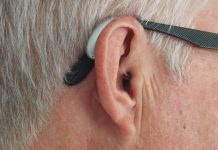Health and technology are close bedfellows, as the advancement of understanding in the human body meets advancements in engineering and invention. The pace of innovation is mercifully high, though hampered by a slow and consistent decline in the quality of UK healthcare – precipitated by government underfunding. Cancer is still a major cause for concern in healthcare, but a new tech development could be the beginning of the end for misdiagnosed cancers in marginalised people.
Technology in Healthcare
The impact of technological advancement on the quality of healthcare today cannot be overstated. Invention and innovation have given us life-saving tools for treating the previously untreatable, while improvements to existing technological principles have eliminated major hurdles to quality of life. One of the starker examples might be the invention of the ventilator, which replaced the restrictive iron lung and revolutionised modern surgery in the process.
Innovation has also given us powerful diagnostic tools, which have played a crucial role in addressing medical negligence claims brought about through poor personal examination or misreading of data. MRI scanners are able to build detailed pictures of the body’s internal condition, while ECGs monitor everything from heart rate to blood oxygenation in-situ.
Of course, technological advancement in healthcare does not just describe hi-tech tools. Technology is also responsible for enabling the mass manufacture of safe implements and protective equipment, keeping doctors and patients safe while guaranteeing quality care.
The Cancer Epidemic
For all the advancements healthcare has seen in recent decades, there remains a lethal enemy: cancer. Cancer is one of the most common causes of death in the UK, and common enough in general that one in every two of us will develop cancer in some form, at some point in our lives.
While cancer research continues to be well-funded, and continues to throw up promising potentials for cure and prevention, cancer still presents a major problem for sufferers and healthcare professionals alike – with the current NHS crisis exacerbating pressures on both sides. As GPs and hospitals struggle under the weight of high demand, early diagnosis rates risk plummeting.
iKnife and Improved Diagnosis
While the NHS’ struggles with underfunding and understaffing are nowhere near over, there is still good news in the form of technological breakthroughs and their swift implementation. A surgical tool called iKnife has been in development for some time, but has recently been revealed to be capable of accurately detecting cancer in patients near-immediately.
The iKnife simultaneously cuts and cauterises wounds in patients, enabling surgeons to cleanly operate. The vapours that result from cauterisation are captured by the iKnife and sent to a mass spectrometer, which analyses included biological material for its contents. According to recent research, the iKnife diagnosed endometrial cancer in a cohort of 150 patients with 90% accuracy – a breakthrough, particularly for a cancer which is typically underdiagnosed in the UK.







